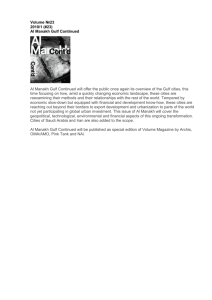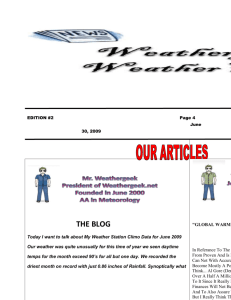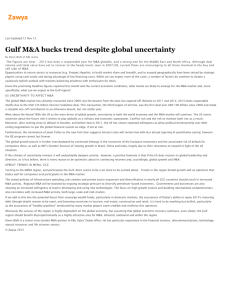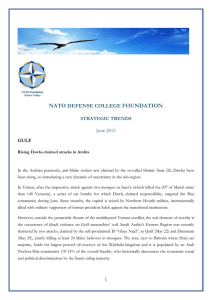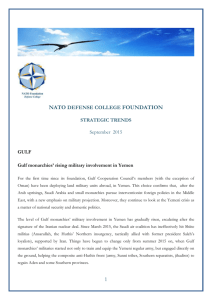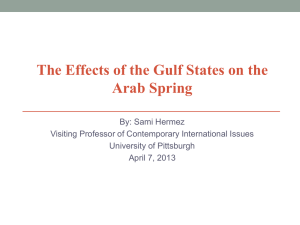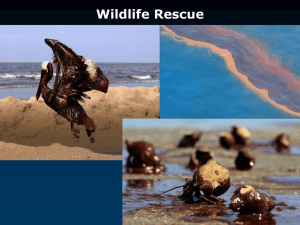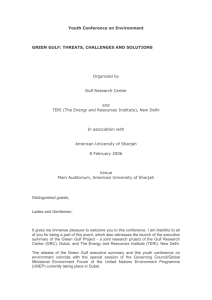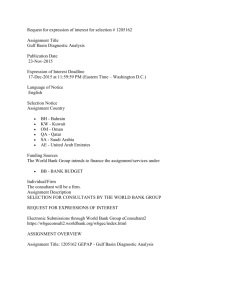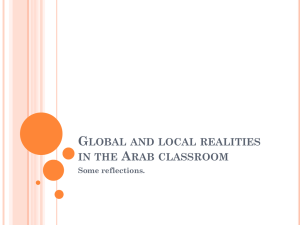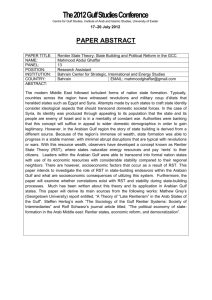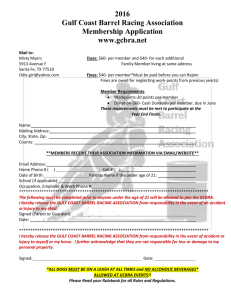GULF Gulf geopolitics and French defence contracts
advertisement
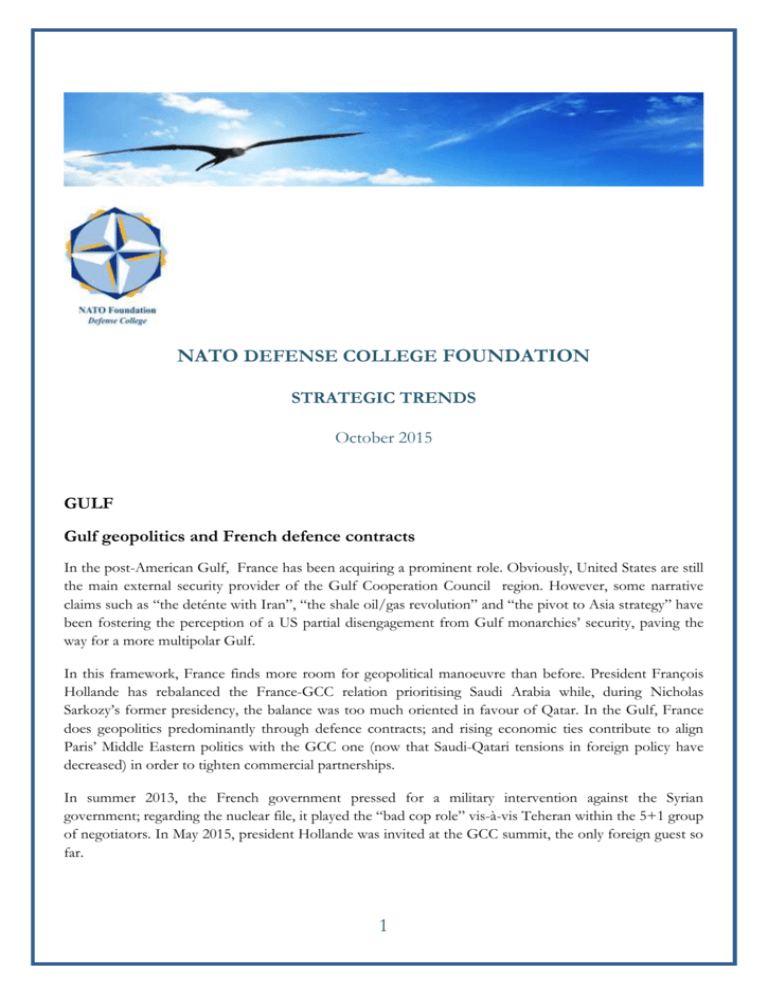
NATO DEFENSE COLLEGE FOUNDATION STRATEGIC TRENDS October 2015 GULF Gulf geopolitics and French defence contracts In the post-American Gulf, France has been acquiring a prominent role. Obviously, United States are still the main external security provider of the Gulf Cooperation Council region. However, some narrative claims such as “the deténte with Iran”, “the shale oil/gas revolution” and “the pivot to Asia strategy” have been fostering the perception of a US partial disengagement from Gulf monarchies’ security, paving the way for a more multipolar Gulf. In this framework, France finds more room for geopolitical manoeuvre than before. President François Hollande has rebalanced the France-GCC relation prioritising Saudi Arabia while, during Nicholas Sarkozy’s former presidency, the balance was too much oriented in favour of Qatar. In the Gulf, France does geopolitics predominantly through defence contracts; and rising economic ties contribute to align Paris’ Middle Eastern politics with the GCC one (now that Saudi-Qatari tensions in foreign policy have decreased) in order to tighten commercial partnerships. In summer 2013, the French government pressed for a military intervention against the Syrian government; regarding the nuclear file, it played the “bad cop role” vis-à-vis Teheran within the 5+1 group of negotiators. In May 2015, president Hollande was invited at the GCC summit, the only foreign guest so far. 1 2015 has been a bright year for French-GCC arms contracts. Qatar has bought 24 Rafale combat aircraft and Kuwait has just signed a 2,5 million euro agreement for the delivery of 24 helicopters Caracal (transport and rescue operations). Last June, Saudi vice crown-prince and defines minister Mohammad bin Salman visited Paris, signing agreements (also in the defence domain) for 10 million euro; on October, contracts were finalized during the state visit of French prime minister Manuel Valls in Riyadh. The Saudi kingdom is now the first recipient of France’s arm exports. The security honeymoon between France and GCC involves also two fundamental Middle Eastern states: Egypt and Lebanon. In 2014, Saudis financed the acquisition of French military equipment by the Lebanese army (3 billion dollars plus 1 billion dollars through the son of the former Lebanese prime minister, the Sunni Saad Hariri, very close to Riyadh). In 2015, Egypt acquired 24 Rafale fighters, 4 Gowind corvettes and one Fremm frigate plus two LHD Mistral (Landing Helicopter Dock, capable of amphibian operations and originally destined to Russia). Notwithstanding US military aid, this military shopping could not have been possible for Cairo without expensive Saudi-Emirati-Kuwaiti donations. From a Saudi perspective, Mistral allows Egypt to gain qualitative edge in the navy field, maybe with an eye to Yemen’s instability. In 2009, France opened a permanent military base in the United Arab Emirates, thus marking, together with the already existing Gibuti strongpoint, a strategic interest for this complex sub-region, at the crossroads between Eastern Africa and the Gulf. Beyond arms purchases, the cooperation between Gulf monarchies and France focusses on know-how and technical expertise transfer to enhance indigenous military capabilities, especially now that small monarchies (UAE, Qatar, Kuwait) have just introduced conscription (although limited by demography). The impact of next, potential French business with Iran in the military field is still going to be assessed and has to be balance against the existing positive relationship with the GCC region. 2
